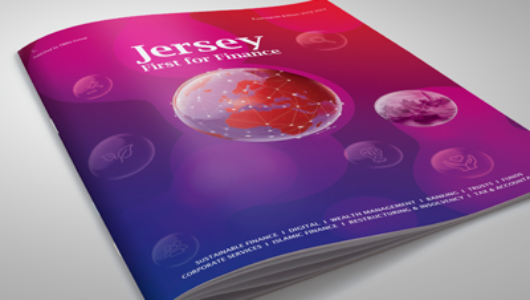Yet what is it that is attracting a growing number of Middle Eastern UHNW investors, as well as institutional investors, to Jersey’s financial services and solutions?
LEGAL AND ETHICAL AFFINITY
First, there are useful similarities between common law – as applied in Jersey – and Islamic law and Shariah principles, making it easier for legal advisors to choose Jersey over other civil law based financial centres. Such similarities not only help facilitate the creation of an appropriate structure similar to Middle Eastern legal constructs, they are also (perhaps most importantly) easier for clients based in region to grasp and appreciate.
The similarities between the two legal systems do not seem to be coincidental, as some legal authors suggest that certain aspects of the common law system can be traced to Islamic origins. Some studies have even found a historic link between the Anglo-Saxon trust and the Islamic waqf, which is a form of charitable endowment.
There is also strong compatibility between Jersey and Islamic finance from a morality perspective. The underlying principles of Islamic finance promote good ethics, stability and reward through risk-sharing.
One could say the same about the key principles underpinning Jersey regulation: they too are based on the ethical and honest behaviour of financial services businesses operating in the jurisdiction. The expectation to act with integrity is backed by a robust regulatory framework that ultimately safeguards the stability and reputation of the Island.
FLEXIBILITY TO SUIT ISLAMIC ALTERNATIVES
Building upon these affinities, Jersey has, over time, established significant Islamic finance expertise and the ability to offer specialist advice and tailored solutions to those seeking Shariah compliant structures. For example, regarding capital market transactions, Jersey has in recent years seen various structures applying Islamic alternatives to conventional financial products.
Murabaha contracts are used, for example, to finance acquisition of assets, for trade financing or the provision of working capital. The rates of return in Murabaha are often benchmarked to conventional bank interest rates, however in contrast with traditional lending, the bank charges a credit price that is higher than the spot price of the property. Therefore, Islamic lenders collect principal amount plus interest on debt documented as a credit price.
When longer-term financing is required, parties often use commodity Murabaha or parallel commodity Murabaha. In both instances, the financing bank does not need to acquire the underlying asset and hence does not carry the associated risks. With parallel commodity Murabaha, the borrower can actually combine conventional, i.e. interest bearing, financing with commodity Murabaha – often using a Jersey special purpose vehicle (SPV) to enter into the master Murabaha agreement instead of contracting directly with the bank.
Another example of the successful use of Jersey is in the area of sukuk. Jersey public companies are often used as the issuer vehicles issuing trust certificates that are listed on major exchanges.
The main difference between a sukuk and a bond is that sukuk represents ownership or usufruct (right of use or enjoyment) to the underlying pool of assets. This way the issuance stays compliant with one of the key principles of Islamic finance: the prohibition on giving and receiving interest (riba).
Sukuks are now a well-established way to raise trading or acquisition finance and we have seen international companies as well as sovereign states issuing sukuks through Jersey companies serving as the issuer vehicle.
ISLAMIC FINANCE AND ESG
Jersey is also making strides towards its goal of being recognised as the leading sustainable international finance centre. With this in mind, there has been a lot of recent debate about Islamic finance principles and their parallels with the principles of sustainable investment and environmental, social and governance (ESG) in general. A relatively new term of ‘green sukuk’ has been developed, aligning clearly with the value system of Islamic law, with countries like Malaysia and Indonesia at the forefront of such issuances.
The ability to capture social good as well as financial returns in Islamic finance products is key and goes with the concept of Tayyib, which means goodness and wholesomeness within an action or object. This concept can be used to provide positive impact linked to sustainable goals and goes beyond just pure legalistic interpretation of the Shariah rules and principles.
Whilst it is recognised that ESG knowledge and experience in the Islamic finance industry is not yet fully developed, there is huge potential for Jersey and its financial services industry to work more closely with GCC-based institutional investors, UHNW families and advisors in this area, positioning the island even more effectively as a frontrunner in sustainable finance efforts.

